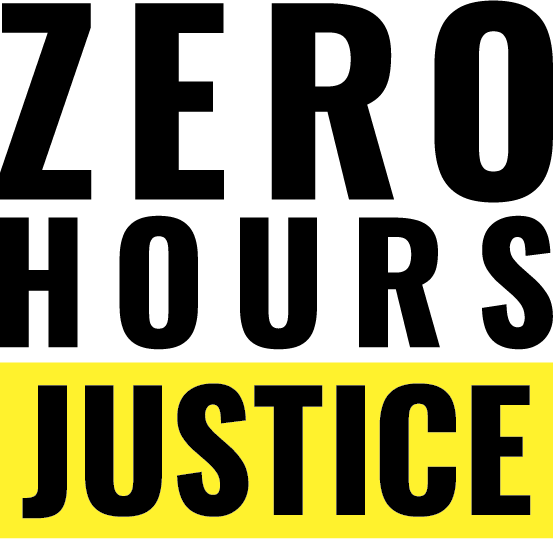|
by Pravin Jeyaraj
If you would like to participate, please contact Konrad Wakolbinger on [email protected]. More information about the project can be downloaded below:
By Chris Peace
Whenever the government is asked to ban or better regulate the use of zero hours contracts, the answer is also the same – that they offer flexibility to both employer and employee. For a very small number of workers, who have other means of financial support, this may be true. However, for most workers, where their zero hours contract is their only means of income, it is simply not the case and this false narrative of “mutual benefit” needs calling out.
Even before the pandemic, low wages were not enough for many to keep up with their cost of living, energy bills, travel, rent and food costs. To get by could be a stretch. Imagine not knowing if your basic weekly or monthly costs could be met, simply because your employer could not give you enough hours of work. Imagine making and committing to childcare costs or making arrangements for care for relatives so you could work, only to be sent home early because “business is quiet” or to be told hours before your shift is due to start that it has been cancelled. Imagine being asked to work longer hours at short notice and risk getting on the wrong side of your boss if you refused. The financial instability created by being on a zero hours contract does not simply result in the worry and reality of impoverishment. It also impacts on basics like renting a home, which is nigh on impossible in the private sector when a stable income cannot be demonstrated to a landlord. The pressure this puts on such workers and their families manifests in anxiety and stress, poor mental and physical health and general misery and unhappiness. Ultimately, zero hours contracts may result in better profit margins for the bosses, but at a potential cost to the public purse. At Zero Hours Justice, we know that banning zero hours contracts is going to need political will. Whilst some political parties have been calling for them to be banned for some time, the current government shows no signs of doing so. We will continue to press for this, alongside the trade union movement, after all we are one of a minority of countries in Europe that hasn’t banned or restricted their use. They are now banned in Ireland in almost all circumstances and completely banned in New Zealand. However, until such change can come from government, the Zero Hours Justice campaign is dedicated to doing all we can to improve and restrict their use to try to bring some improvement to the lives of zero hours workers. To this effect we have developed our Fairer Hours Contracts standard and seek to persuade employers to adopt it. This would mean workers get a minimum of two weeks’ notice of their shift, and shifts cancelled at less than 2 weeks’ notice would still be paid in full. Fairer Hours accreditation also requires employers to give zero hours workers the right to request a fixed hours contract at any time as well as an annual review of actual hours worked with a view to providing a contract at or as close to the hours as soon as they can. Good employers can lead the way in addressing what the government has yet failed to do by adopting our proposals. More importantly, the lives of hundreds and thousands of workers would be improved. |
contactFor press enquiries or permission to reuse content, please contact: Archives
June 2024
CATEGORIES
All
|
||||||||||
|
Company No: 12417909 Registered Office: 38 Coney Street, York, Y01 9ND
|



 RSS Feed
RSS Feed


